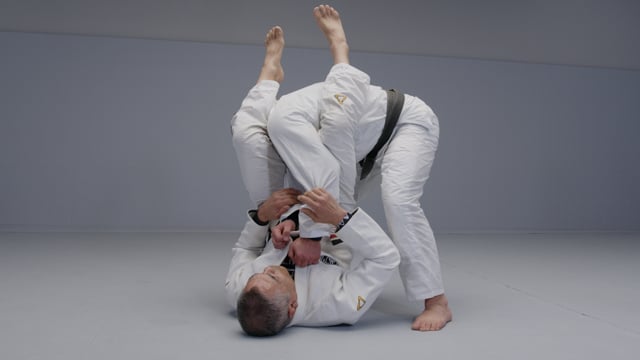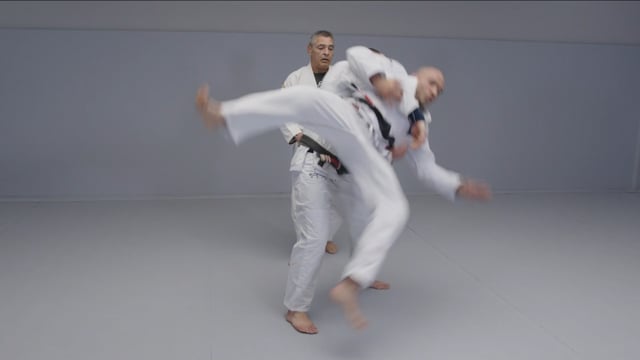What human invention was most important for the development of jiujitsu? The gi, for sure, was one of the greatest. The mat and the açaí bowl are also up there.
But there is perhaps one that is the main one: verbal communication in questions and answers. Without this, how could we have learned good jiujitsu from the masters?
Grunts and pantomime would certainly get in the way of the whole process, not to mention the confusion that would ensue when it came time to settle the tuition. The art of elaborating a question and remaining attentive and silent when receiving an answer is one of the pillars of the development of the martial art, and of life in society.
Rickson Gracie, as an influential master and one of the greatest representatives of the sport since his youth, has heard countless (thousands, millions?) of questions about jiujitsu techniques, history, didactics, and philosophies.
Among the most common ones, addressed to Rickson by students, friends, and journalists, four very frequent ones are pinned below:
1. What did you learn in your epic vale-tudo debut against the giant King Zulu?
2. What do you think about the teaching of jiujitsu around the world today?
3. Does training without a gi help the practitioner evolve?
4. What tactics would you have used to beat Kazushi Sakuraba, when the fight was floated in the late 1990s?
Gracie, of course, has already answered each of these questions several times. Some of the most brilliant answers were:
1. "In the first fight against King Zulu, I was 19 years old, and about 72kg, and he was about 96kg. He threw me out of the ring three times, which kind of amazed me. I was exhausted in between, but when the fight was over I learned a great lesson that I will take with me for life: every time I am tired, my opponent will be tired too. That's what my father Helio told me in the corner. My brother Rolls threw a bucket of ice on me, and I came back for the second round. Said and done: in three minutes he was put to sleep."
2. "Today we see jiujitsu spread to the four corners of the world, which fills me with pride. At the same time that there are many men and women competing, the number of practitioners and the attention given to the sport has increased. The part of self-defense has been a little bit removed from the daily practice of jiujitsu, and this needs to improve.”
3. "The jiujitsu fighter does not increase his effectiveness by training without a gi. He has to create new technical situations to adapt to the game, but that doesn't mean it is an athletic development. Submission grappling is simply a sport that, because it is financially attractive, is gathering a high number of fans."
4. "If my career had a gap, it was this confrontation against Japan's Sakuraba. At the time I was offered $5 million to fight Sakuraba. It was a thorn in my throat for a while. The possibility of this fight came up in my career at the time I lost my son Rockson. It didn't happen and it won't happen anymore. Analyzing him coldly, I never thought he was very good technically, but he had an incomparable calmness under pressure. He was able to close up like a turtle and withstand all kinds of pressure, when the opponent wanted to mount or take his back. When the opponent would lose the position, it was devastating and Sakuraba would grow in the fight. Consistent pressure, without letting him get out from the bottom, would be my tactic then. In the visualizations in my head, I'm sure I wouldn't lose my cool: I would advance on the ground without haste, until reaching an advantageous position to finish. Every time an opponent of Sakuraba's didn't materialize the position and wasted the opportunity, he would attack with a stronger spiritual force. I know I wouldn't let that happen, because in my life I've always done it like that. I would keep him in discomfort. If he gave me half an opportunity, I bet I would take full advantage of it and turn it into victory."
The fifth and final question Gracie has heard the most is probably the most valuable for any and all students. And that would be:
"Master, what am I doing wrong here?"
Use this wonderful invention called the "asking technique" and go further with your studies on the mat. Oss...
(Click the hashtag below to read more articles like this.)
(Click the hashtag below to read more articles like this.)


Comments
Thank you for free giving all your wisdom!
"Every time I am tired, my opponent will be tired too."
Thank you GM Rickson